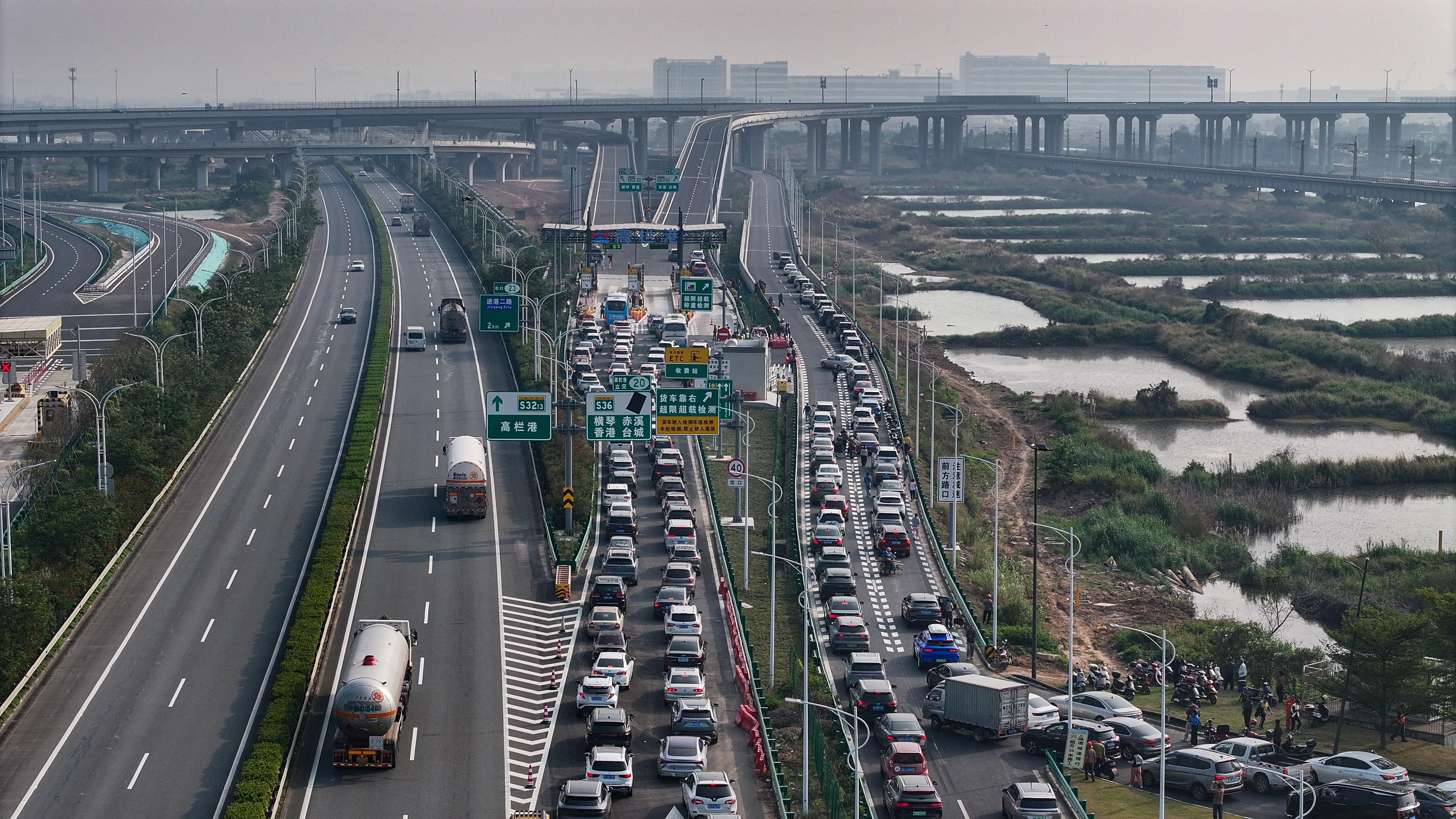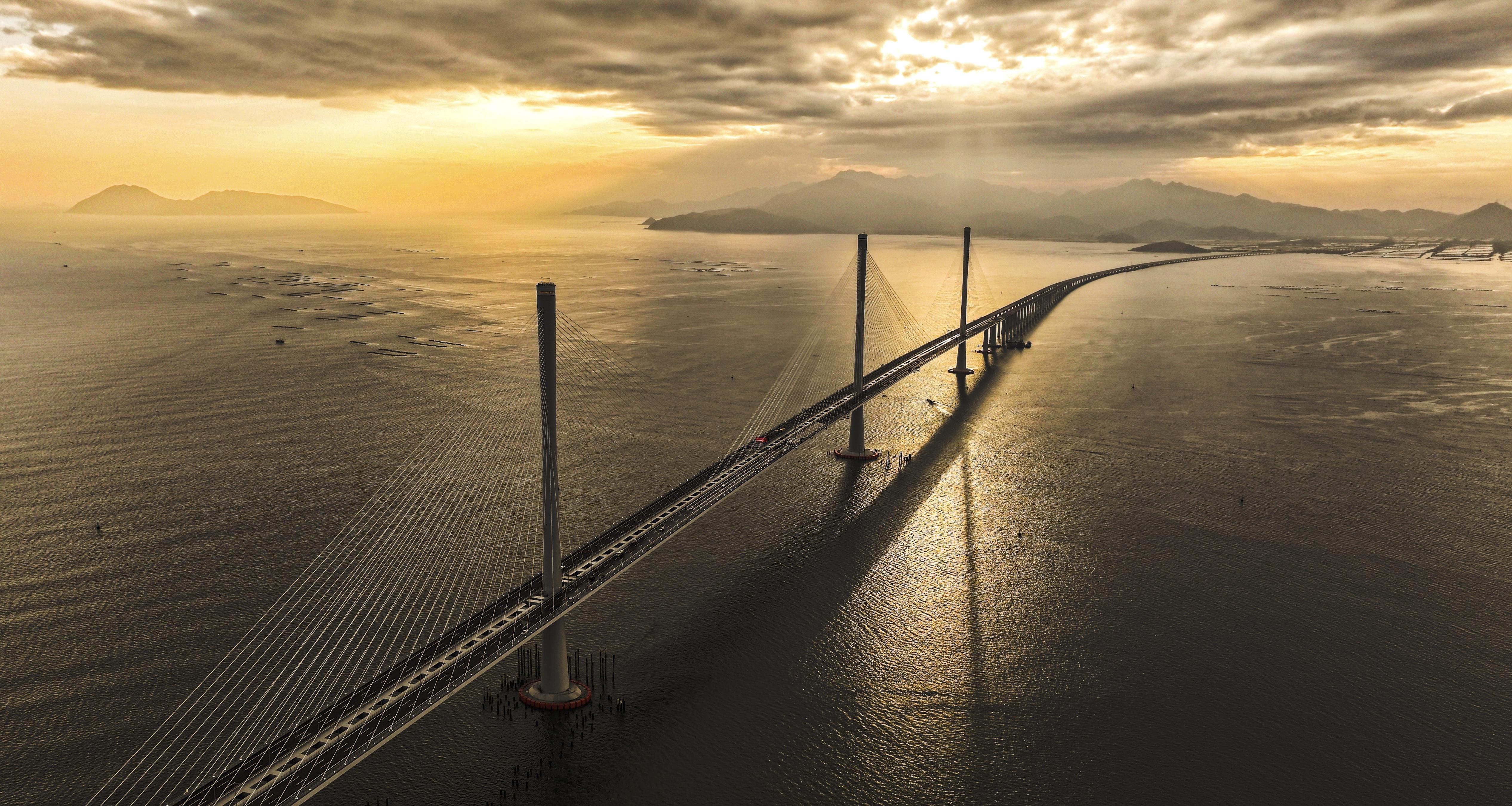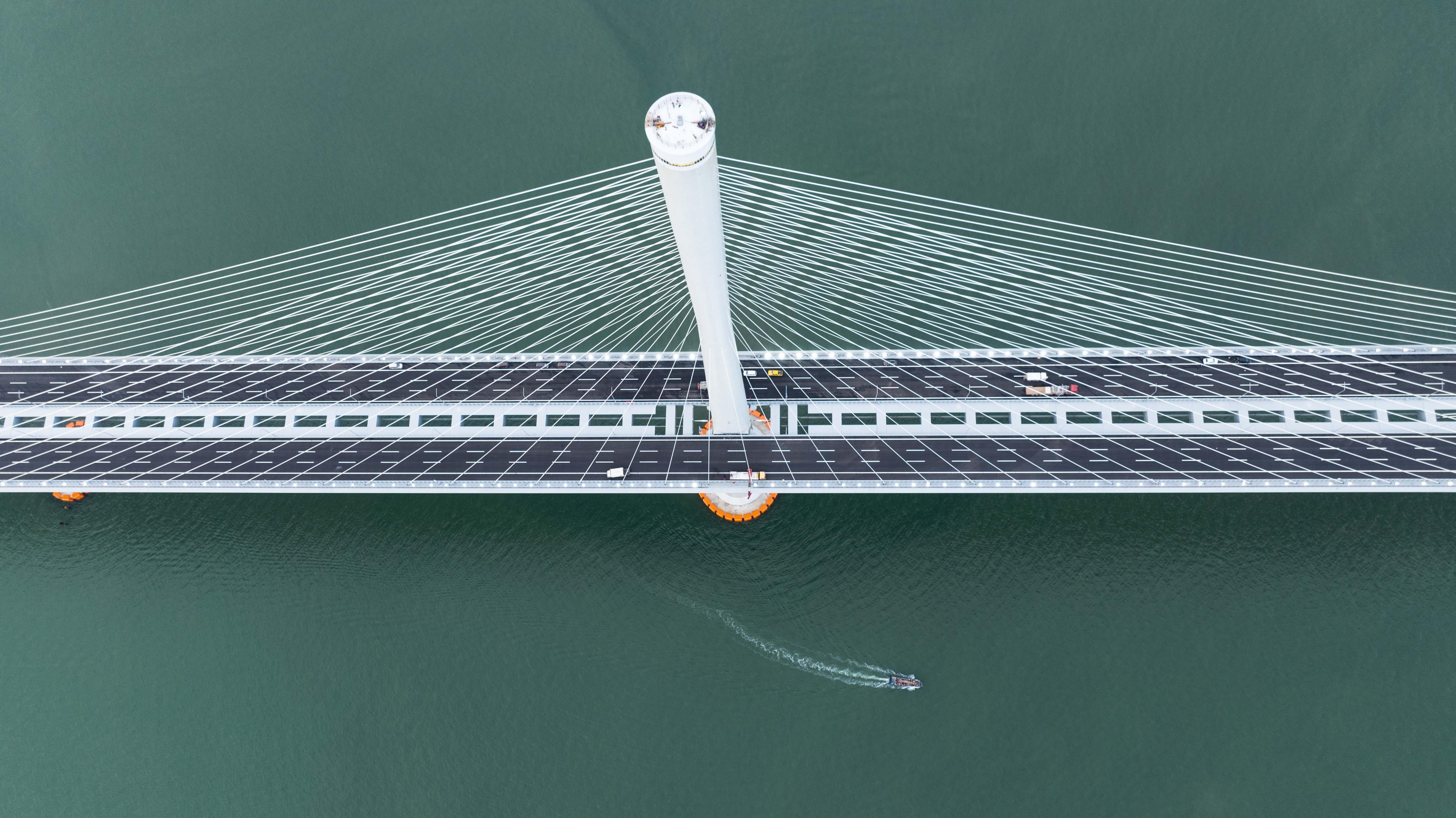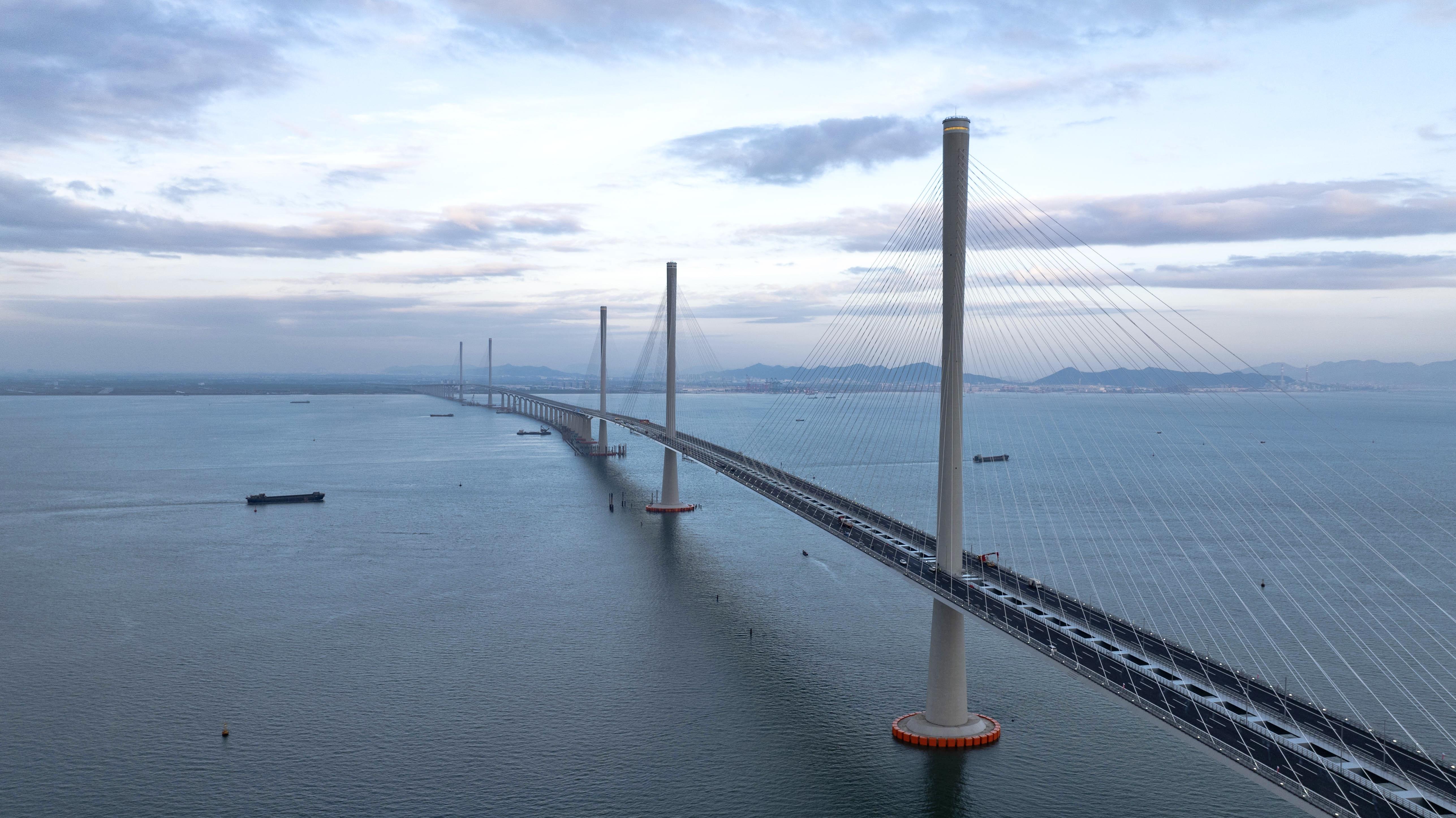
On December 11th, another giant project emerged on the west bank of the Pearl River Estuary-The Huangmaohai Cross-Sea Passage officially opened to traffic. As part of the west extension of the Hong Kong-Zhuhai-Macao Bridge and the first cross-sea passage project to start construction following the release of the"Outline Development Plan for the Guangdong-Hong Kong-Macao Greater Bay Area", the passage connects the Hegang Expressway to the east and the S49 Xinhui-Taishan Expressway to the west, intersecting with the Western Coastal Expressway. Together with the Hong Kong-Zhuhai-Macao Bridge, the Shenzhen-Zhongshan Link, the Nansha Bridge, and the Humen Bridge, it forms a network of cross-sea and cross-river passages that will become a world-class transportation hub in the Guangdong-Hong Kong-Macao Greater Bay Area (GBA).

As a result, Gaolan Port in Zhuhai and Taishan in Jiangmen are now officially connected; the direct drive between Hong Kong, Macao, Zhuhai, and Jiangmen, taking just over an hour has become a reality.
Located at the western entrance of the Pearl River Estuary, the Huangmaohai sea area is one of the regions with the highest frequency of typhoons in the world. Huangmaohai Sea Channel Bridge, with a 720-meter single-span and a total length of 2,200 meters, is the world's longest triple-tower cable-stayed bridge.On the bridge, the builders employed a fully floating design which relies entirely on the tension from the towers and cables to keep the bridge suspended. Through innovative engineering design and technology, the bridge is capable of withstanding typhoons up to level 17 in intensity.

Over the past four years, the builders have embarked on a path of innovation: for the first time in the world, they conducted full-bridge vortex-induced wind passage tests; the single-paving area and length of the epoxy asphalt concrete steel deck set world records; and they innovatively adopted a "three-tower, two-span" unique design. The Huangmaohai Sea Channel Bridge, with its main tower standing as tall as an 85-story building, along with the Gaolan Port Bridge, forms five "hourglass-shaped" towers reaching out to the sea, becoming another iconic landmark in the GBA.
The opening of the Huangmaohai Cross-Sea Passage means more convenient travel for many residents of Hong Kong and Macao. According to incomplete data, at least one in every ten people in Hong Kong has ancestral roots in Jiangmen. With the Huangmaohai Cross-Sea Passage now in operation, the drive for Hong Kong residents to return to their hometowns for ancestral rituals is expected to be shortened to just one and a half hour.
Source: Lingnan On the Cloud
黄茅海跨海通道今日通车
12月11日,珠江口西岸又一条巨龙横空出世——作为港珠澳大桥西延线、《粤港澳大湾区发展规划纲要》发布后首个开工的跨海通道工程,黄茅海跨海通道正式通车。通道东接鹤港高速,西连新台高速并与西部沿海高速相交,与港珠澳大桥、深中通道、南沙大桥、虎门大桥共同组成粤港澳大湾区跨海跨江通道群,形成世界级交通枢纽。
由此,珠海高栏港与江门台山,正式执手相牵;香港-澳门-珠海-江门,跨越山海的1个多小时“直连”自驾成为现实。
位于珠江西部入海口的黄茅海海域,是全球台风发生频率最高区域之一。在这座凭借720米的单孔跨径和2200米的桥梁全长成为世界跨径最大三塔公路斜拉桥的黄茅海大桥上,建设者们利用全漂浮设计,即完全依靠塔柱与斜索的拉力使桥身处于全悬浮状态,并使用创新力学设计及技术,令大桥可抵抗17级台风。

在这四年里,建设者们也走过了一条创新爬坡之路:世界范围内首次开展全桥涡振风洞试验、环氧沥青混凝土钢桥面单次铺装面积和长度均创世界纪录;创新性采用“三塔两跨”独特设计、主塔高达85层楼高的黄茅海大桥与高栏港大桥一起形成五座“小蛮腰”出海,成为粤港澳大湾区又一醒目地标。
黄茅海跨海通道通车,对不少港澳居民而言,意味着更便捷的出行。不完全数据显示,每10个香港人中至少就有一个祖籍在江门。有了黄茅海跨海通道,香港人返乡祭祖自驾行程有望缩短至1.5小时。

文丨记者 王丹阳 孙晶
图丨记者 蔡嘉鸿
翻译丨林佳岱
审校丨赵凡
-
Poster丨The Nansha Longxue Intangible Cultural Heritage Folk Culture Festival was officially opened
2024-12-11 21:06:02 -
Guangdong-Macao trade hits 300b RMB 25 years since Macao's return to China
2024-12-10 22:29:29 -
'Lion king teens' from multiple countries gather in Malaysia to compete for the pinnacle of lion dance
2024-12-10 22:29:05 -
Maritime·Paris | Main Visual and Schedule Announces
2024-12-10 21:15:12






